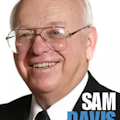THE SCIENCE, TECHNOLOGY, ENGINEERING, AND Mathematics (STEM) Education Coalition works to support STEM programs for teachers and students at the U. S. Department of Education, the National Science Foundation, and other agencies that offer STEM-related programs. STEM comprises advocates from more than 1,000 diverse groups representing all sectors of the technological workforce — from knowledge workers to educators to scientists, engineers, and technicians — dedicated to ensuring quality STEM education at all levels.
One STEM advocate is the Florida Space Grant Consortium (FSGC) — administered through the University of Central Florida and the Florida Space Institute. The Consortium is a voluntary association of 17 public and private Florida Universities and colleges, and also includes all of Florida's community colleges, as well as Space Florida, the Kennedy Space Center, the Astronaut Memorial Foundation, and the Orlando Science Center.
FGSC's mission is to strengthen Florida's economy and augment NASA Educational Outcomes by:
- Providing space-related fellowships, scholarships, and internships
- Supporting research opportunities and academic-NASA-industry partnerships
- Enhancing STEM awareness, literacy, education and excellence in Florida's citizens, public and private educational systems, and workforce
- Leading the National Space Grant Consortia with effective and innovative programs and activities supporting STEM education and aerospace/space academic-NASA-industry partnerships throughout Florida
FSGC is collaborating with the University of Central Florida's College of Engineering Outreach (UCF-CECS) office to implement a number of K-12 programs targeted toward teachers. The goal of the UCF-CECS is:
- To highlight the importance of pre-college engineering education in Florida
- To showcase successful formal and informal pre-college engineering education programs
- Share data with STEM educators and administrators
This is accomplished in a one-day event hosted at UCF's student union. The morning consists of three panel presentations and the afternoon includes workshops.
Panel presentations include:
- Session One: An Engineer's Retrospective: What I wish I learned and/or did while in school.
- Session Two: Integrating Engineering into the K12 Classroom: An elementary, middle, and high school perspective
- Session Three: Industry-Professional Engineering Organization sponsored pre-college engineering education programs
NASA-KSC (Kennedy Space Center) will provide speakers for one of the panels and one of the four workshops. FSGC will join the Florida Engineering Foundation, Harris Corporation, and SWE in providing funding.
On the West Coast, Agilent Technologies Inc. announced its sponsorship of the electrical engineering undergraduate teaching lab at Santa Clara University (SCU) in Silicon Valley. The lab provides students with access to the most current electronic test equipment used in the industry.
The SCU lab uses Agilent oscilloscopes, power supplies, multimeters, and function generators. The lab affirms SCU's commitment to work with Silicon Valley companies, such as Agilent, to deliver an advanced engineering laboratory environment for the undergraduate program.
“We are very pleased with the outcome of our work with Agilent and hope that it will be an incentive to other innovative technology companies to partner with us,” said Cary Yang, professor and chair of the electrical engineering department. “Santa Clara University is very focused at delivering real-life challenges with academic achievement. This lab gives our students an excellent and competitive engineering instructional environment in which to learn and grow.”
“Agilent is dedicated to making available the latest tools and instructional material so the next generation of engineers can successfully compete in the global market,” said Bill Wallace, Agilent's Americas education business development manager. “We are already in discussions with SCU about other exciting possibilities for their program.”
About the Author

Sam Davis
Sam Davis was the editor-in-chief of Power Electronics Technology magazine and website that is now part of Electronic Design. He has 18 years experience in electronic engineering design and management, six years in public relations and 25 years as a trade press editor. He holds a BSEE from Case-Western Reserve University, and did graduate work at the same school and UCLA. Sam was the editor for PCIM, the predecessor to Power Electronics Technology, from 1984 to 2004. His engineering experience includes circuit and system design for Litton Systems, Bunker-Ramo, Rocketdyne, and Clevite Corporation.. Design tasks included analog circuits, display systems, power supplies, underwater ordnance systems, and test systems. He also served as a program manager for a Litton Systems Navy program.
Sam is the author of Computer Data Displays, a book published by Prentice-Hall in the U.S. and Japan in 1969. He is also a recipient of the Jesse Neal Award for trade press editorial excellence, and has one patent for naval ship construction that simplifies electronic system integration.
You can also check out his Power Electronics blog.